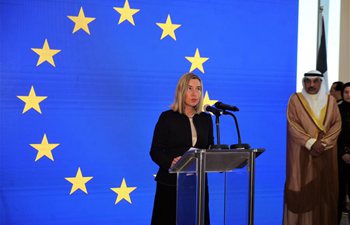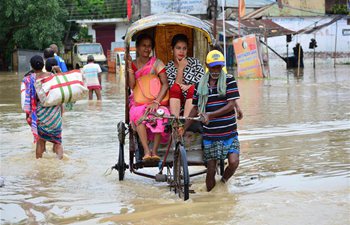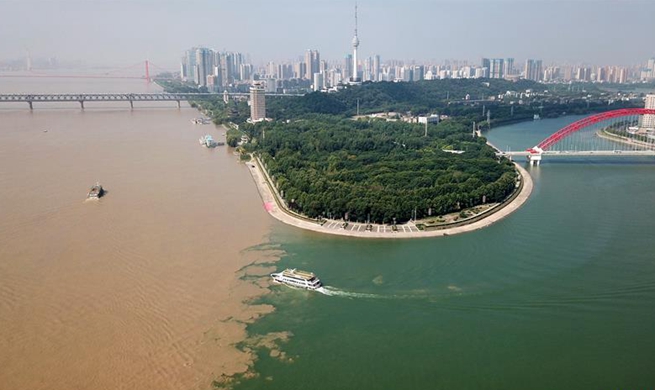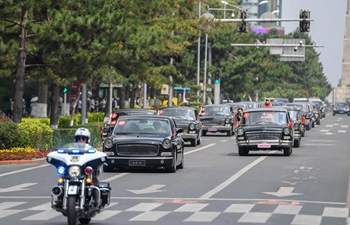BERLIN, July 15 (Xinhua) -- Carola Rackete, German captain of the humanitarian ship Sea-Watch 3, called on Europe to welcome refugees from Libya who are in the hands of smugglers or in refugee camps in an interview with the newspaper Bild on Monday.
"Those who are in Libya must immediately get out of there, into a safe country," Rackete told the Bild, adding that "we are hearing about half a million people who are in the hands of traffickers or in Libyan refugee camps and who we must get out."
Rackete's demand met with approval from the Left Party (Die Linke), whose spokesperson for domestic affairs, Ulla Jelpke, said that the German government needed to "make it possible for all refugees in Libya" to be admitted to Germany.
In Libya, refugees were "imprisoned, abducted, tortured, raped, forced to work and sold into slavery," said Jelpke, adding that to end the humanitarian crisis, "permanently safe escape routes to Europe must be created."
"People are kept in prisons in Libya or are already stopped in the Sahara. The European Union (EU) is paying for a Libyan border control that is involved in human trafficking," Rackete said.
Germany and the other European states had "a historical responsibility to take in refugees who are no longer able to live in their countries" particularly due to climate change, according to Rackete.
On Saturday, German Minister for Foreign Affairs Heiko Maas (CDU) argued that Germany and other countries willing to accept refugees should play a pioneering role.
"We need an alliance of those willing to help for a binding distribution mechanism," the German foreign minister said in an interview with the German media group RND.
Mathias Middelberg, spokesperson for domestic policy for the conservative CSU/CDU group, also saw the need for a binding mechanism but considered further measures necessary.
"A constant distribution mechanism would be very helpful, but would not bring a sustainable solution on its own," Middelberg told the German Press Agency.
In the medium term, an "even more intensive cooperation with the countries of origin and transit" was needed to reduce migration as well as disembarkation platforms on the Mediterranean coasts for the purposes of processing asylum procedures, Middelberg stressed.
EU governments have been struggling to hammer out a consensus on how to handle the ongoing arrival of refugees on Europe's shores. Attempts to introduce quotas for the distribution of refugees among EU member states have largely failed.
EU countries, such as Poland and Hungary, have in recent years rejected German-led efforts to introduce an EU-wide system for redistributing refugees who have crossed the Union's borders.
The International Organization for Migration (IOM) and the United Nations refugee body (UNHCR) have called on the EU to implement a series of measures to help those trapped in Libya or who risk their lives to cross the Mediterranean Sea.
The UNHCR and IOM said that EU countries should "consider the protection of the human rights of migrants and refugees a core element of its engagement in Libya."
According to the IOM, since the beginning of the year, at least 682 migrants have died in the Mediterranean, 426 of them on the Libya-Europe route.













